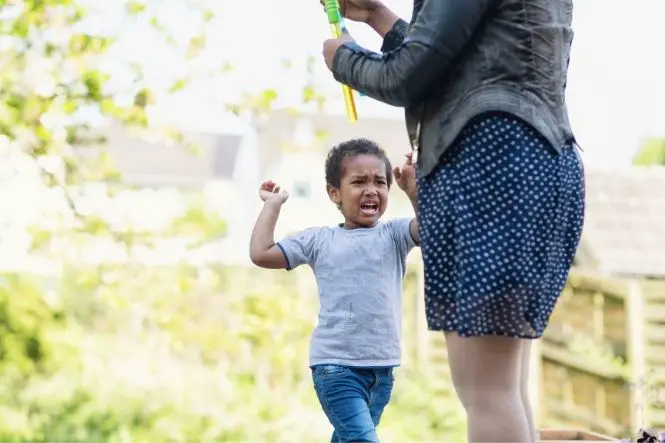It is very common for children who have not yet reached school age to steal, mainly because children do not understand that concept of private property at such a young age. Instead, children under the age of five or six have a very self-centred view of the world and tend to act according to a line of thinking such as “what I want, I get”. This means that if they want another child’s toy, for example, they’ll just reach out and take it. Since children this young do not understand that what they are doing is wrong, it is up to parents and other adults to teach them about private property, ownership, borrowing and stealing. However, when children are older than age six they should know that stealing is wrong. When children of this age steal something, parents must strive to understand why the child steals and discipline the child accordingly in order to remind him or her that this behaviour is inappropriate.
Young Children and Stealing
Young children steal items simply because they want them and they do not know any better. This may be as simple as a child taking a stuffed animal from a friend’s house or pulling a new toy off of a store shelf simply because it catches his or her eye. When such events occur, parents must remember that young children do not know any better. They have no concept of private property or that items belong to certain individuals, so rather than punishing a child parents should strive to educate him or her. Reminding children that items belong to people by saying “Jimmy has such a nice teddy! Let’s ask Jimmy if we can play with his teddy” will help them begin to understand the concepts of ownership and borrowing. When children do take items that do not belong to them, parents should address this issue such as by saying “This is Jimmy’s teddy and he will be missing him. It was not right for you to take him without Jimmy’s permission.” Keeping these discussions short and simple will help ensure that children understand the main concepts.
Older Children and Stealing
Older children, those aged six and above, should understand that stealing is wrong but many do it anyway. There may be a variety of reasons that older children steal, including that they have succumbed to peer pressure, that they have no money to buy what they want, that they have seen adults or others steal, that they have never been disciplined for stealing and/or that they have an underlying mental or emotional problem that pushes this behaviour. When an older child does steal, parents should speak to the child to determine why (s)he did so. Addressing the cause of the behaviour will help it from happening again. However, parents should also discipline an older child each and every time (s)he steals in order to reinforce that such behaviour is inappropriate and will not be tolerated.
Discipline and Stealing
How a parent disciplines a child for stealing is a private matter, but any method employed should teach the child that stealing is wrong. For example, having the child return the stolen item and apologise for his or her theft will remind him or her that not only did (s)he take something, but that (s)he hurt someone else as well. Discuss these topics with your child, and also institute a chore or task that (s)he must complete to truly make amends for the theft. Unfortunately apologies can be insincere, so adding another dimension to the discipline is a good idea. If stealing persists or becomes consistent, consider getting a mental health expert involved to help determine how best to help your child stop this behaviour.



